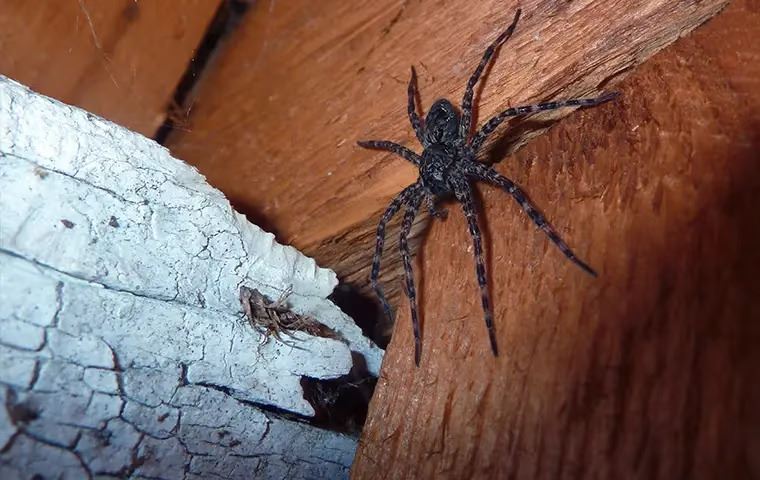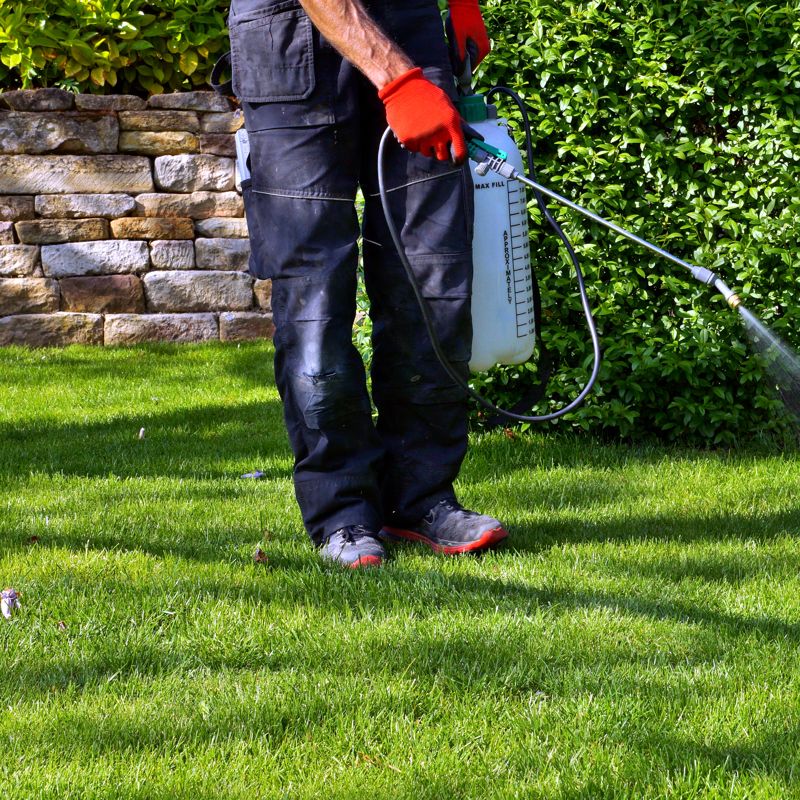
Spider Identification
Spiders
What are spiders?
All spiders have eight legs, two body parts (cephalothorax and abdomen), and no antennae. They have fang-like mouthparts called "chelicerae.” They use their “fangs” to inject venom into their prey to subdue them. Spiders don't have chewing mouthparts. Instead, they use digestive enzymes in their saliva to break down their food before eating it.
Four of the most common spider species found in Saint Clair County, Michigan, are black widow, brown recluse, house, and wolf spiders.
Black widow spiders Black widow spiders are usually identified by an orangish-red "hourglass" mark on the underside of their abdomen. They also have light red or white markings on their abdomen and backs. Their round bodies are black in color and shiny.
Brown recluse spiders Brown recluse spiders range in color from yellowish-gray to black. Their long legs are darker in color than their bodies. They have a distinct "violin-like" pattern on the top of their bodies. Brown recluses also have three pairs of eyes that are noticeably arranged in a semi-circle.
House spiders House spiders are yellowish-brown in color with an off-white colored abdomen. Males are generally darker and smaller than females. Their bodies and legs have dark stripes that form a chevron pattern. As their name suggests, they are common household invaders.
Wolf spiders Wolf spiders are large, fast-moving spiders. Instead of using a web to catch their prey, they chase and hunt down their prey. They are dark brown in color and have two dark stripes on their back. Wolf spiders have great eyesight. They have stout bodies, long legs, and are covered in hair.

Happy Customers in Your Neighborhood
Hear From Our Happy Customers
-
“Good communication, fast service, and fair prices.”- Joe Bauer
-
“Very happy with the spraying services. Hornets no more. Fast, friendly service. I signed up for yearly maintenance for spraying.”- Jennifer W.
-
“Educated, professional and all around a 100% positive experience. I’ll be referring everyone to Eco Pest Control. Thank you for everything.”- Sophia W.
-
“VERY rarely do I spot a bug in my home. If I do I give them a call and they come out the next day. Ken is incredibly kind, friendly, and helpful.”- Noel H.
How can I prevent spiders in the future?
In conjunction with professional services, doing the following can help to prevent problems with spiders:
- Make sure screens are completely intact.
- Eliminate water sources.
- Maintain your lawn and keep your grass cut short.
- Caulk cracks and crevices in the foundation and exterior walls of your home.
- Place weather stripping around exterior windows and doors.
- Trim tree limbs, shrubs, and bushes away from the outside of your home.
- Remove excess piles of debris like woodpiles, rock piles, leaf piles, and grass piles from your property.
- Regularly clean and remove spider webs that have been created inside your home.




